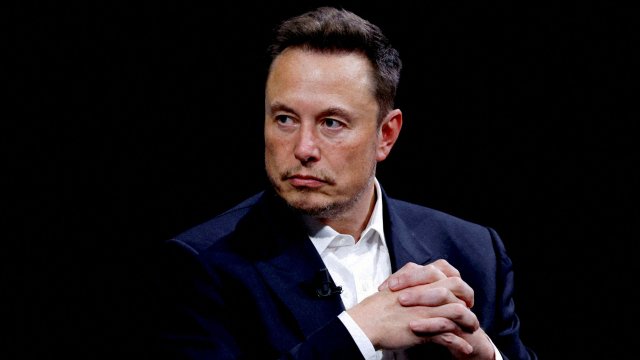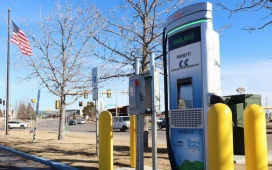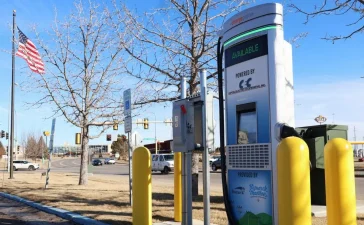The cost of second-hand electric vehicles (EVs) is plummeting but the UK’s lack of infrastructure is preventing previously priced-out car buyers from taking up greener driving, experts have warned.
A report from the AA found that prices of used electric and hybrid vehicles have dropped by 12 per cent over the last year, from £22,158 to £19,548.
Models such as the Seat Mii Electric and Volkswagen e-Up have seen price drops of more than 40 per cent.
Motoring groups believe the trend could see second-hand electric cars become as cheap as combustion engine vehicles within the next couple of years, as a flood of cheaper Chinese models see supply begin to exceed demand.
Jack Cousens, head of road policy at AA Cars, said many consumers remain unaware of significant price drops in the second-hand EV market, adding: “The reality of electric vehicles is far better than its perception.”
However, experts say a lack of consumer confidence over charging facilities and battery ranges are still holding back second-hand buyers. A recent survey of 66 independent used car dealers across the UK cited a lack of demand as more than half (51 per cent) said they were less interested in stocking used EVs compared to 12 months ago.
While business fleet purchases are growing, demand in electric vehicles from private buyers fell by 7.7 per cent last year.
Alex Buttle, co-founder of used car selling comparison website Motorway.co.uk, said: “The Government still needs to do more to encourage private buyers to make the leap to electric.
“Greater charging infrastructure and tax incentives are what the industry needs to really power up the private EV market.”
The Government has said it wants 300,000 public chargers across Britain by 2030, with the figure having doubled to more than 57,000 in the last four years.
However, concerns have been raised about so-called charging blackspots, with Cornwall having just one charger for every 471 electric vehicles during the busy summer tourism season, according to Schneider Electric.
Government subsidies including the £450m Local Electric Vehicle Infrasttucture Fund are being rolled out to local authorities to help increase uptake.
Sam Hall, director of the Conservative Environment Network (CEN), said, “There’s been lots of progress and a big increase in the number of EVs being sold each year, and a rise in the share of EVs on the market (in recent years),” but added more needed to be done to reassure potential second-hand EV drivers.
The CEN is calling for battery health certificates to give consumers buying second-hand peace of mind. The second-hand market is mostly populated with models from 2020 or later, meaning that their batteries are likely still in good condition.
The average electric car produced in recent years has a driving range of around 250 miles on one charge, while UK drivers typically drive 120 miles per week.
Unlike some of its European counterparts, the UK does not currently offer incentives or subsidies to electric vehicle buyers.
The automotive industry issued renewed pleas for electric car purchase incentives, urging for VAT to be halved on the purchase of new electric vehicles.
Mike Hawes, chief executive of the Society of Motor Manufacturers and Traders, said: “A sluggish private market and shrinking EV market share, however, show the challenge ahead.
“Manufacturers are providing compelling offers, but they can’t single-handedly fund the transition indefinitely.
“Government support for private consumers – not just business and fleets – would send a positive message and deliver a faster, fairer transition on time and on target.”
However, 2024 is the first year that the zero emission vehicle mandate has been imposed, which requires manufacturers to ensure that 22 per cent of their new car sales are for electric vehicles, rising to 80 per cent by 2030 and 100 per cent by 2035.








